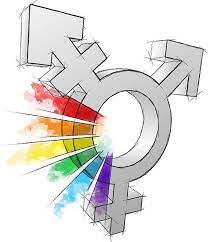In the ever-evolving landscape of gender identity and expression, terms like MTF (male to female) have gained significant attention. Understanding such terms can be crucial for fostering empathy and awareness in our society. This article aims to demystify MTF, explaining its meaning, its relevance in everyday life, and its cultural significance. By the end, you’ll have a clearer picture of what MTF represents and why it matters.
What Does MTF Mean? A Quick Overview for Everyone
MTF, or male to female, is a term primarily used to describe someone who was assigned male at birth but identifies and transitions to female. This transition can encompass a variety of changes, including social, medical, or legal aspects. The term is often used in discussions surrounding gender identity, transgender experiences, and the broader LGBTQ+ community. Understanding MTF is essential for recognizing the diversity of gender experiences beyond the traditional binary notions.What Does Sis Woman MeanBest Mtf Transitions
The concept of MTF is part of a larger framework of gender identities. It highlights the idea that gender is not strictly about biological sex but encompasses an individual’s personal identity and expression. This distinction is crucial in promoting acceptance and understanding for those who may not fit conventional gender norms.
The Basics: Understanding MTF in Everyday Life
In everyday life, MTF individuals may navigate various challenges associated with their transition. This can include changes in pronouns, names, and appearances. Social acceptance and recognition play a significant role in their experience. Many MTF individuals seek to align their external presentation with their internal identity, which contributes to their overall well-being and mental health.
Beyond personal experience, MTF can also affect relationships with family, friends, and colleagues. Support systems are vital for MTF individuals, as they may face discrimination or misunderstanding. Acknowledging and respecting someone’s gender identity can foster a more inclusive environment where everyone feels valued and accepted.
Who Uses MTF? Exploring the Community Behind the Term
The MTF term is widely embraced within the transgender community, but it also resonates with allies, advocates, and educators. This terminology is significant for those involved in gender studies, mental health, and social advocacy, as it sheds light on the lived experiences of individuals undergoing gender transition. By using such terms, people can engage in meaningful conversations about gender fluidity and identity.
Moreover, the MTF community often collaborates with various organizations and support groups aimed at providing resources, education, and advocacy. These groups not only support MTF individuals but also work to raise awareness about transgender issues, helping to dismantle stereotypes and promote understanding across different societal sectors.
MTF in Pop Culture: Movies, Music, and Beyond
MTF representation has gradually gained traction in pop culture, with various films, television shows, and music addressing transgender experiences. Icons like Laverne Cox and Caitlyn Jenner have brought the MTF narrative to mainstream audiences, creating opportunities for dialogue and representation. Their stories resonate with many, highlighting the struggles and triumphs faced by MTF individuals.
Additionally, music and art have become powerful avenues for MTF expression. Artists like Sam Smith and Kim Petras have used their platforms to raise awareness about gender identity, often drawing from personal experiences. This visibility in popular culture plays a crucial role in normalizing MTF identities and fostering acceptance in society.
The Science Behind MTF: A Look at the Terminology
Understanding MTF also involves delving into the scientific and medical terminology associated with gender transition. Medical interventions for MTF individuals can include hormone replacement therapy (HRT) and gender-affirming surgeries. These procedures aim to align an individual’s physical appearance with their gender identity, significantly impacting their mental health and overall quality of life.
However, it’s essential to note that not all MTF individuals choose or can access medical transition. Gender identity is deeply personal, and each individual’s journey is unique. Therefore, understanding MTF requires a holistic view that respects the choices and experiences of those within the community.
Common Misconceptions About MTF You Should Know
One common misconception about MTF individuals is that transition is solely about medical procedures. While many pursue medical changes, others may identify as MTF without any physical alterations. It’s crucial to understand that identity is personal and can vary widely among individuals. Respecting people’s self-identification is key to fostering acceptance.
Another misconception is that MTF individuals are simply "confused" or seeking attention. In reality, their gender identity is a core aspect of who they are. Misunderstanding or dismissing their experiences can contribute to stigma and discrimination. It’s vital to approach the topic with compassion and an open mind, recognizing the diversity within gender identities.
How MTF Connects to Broader Gender Discussions
MTF is part of a larger conversation about gender, which encompasses various identities, including FTM (female to male) and non-binary individuals. These discussions challenge the traditional binary understanding of gender and encourage a more nuanced approach to identity. By incorporating MTF into broader gender discussions, society can start to appreciate the complexities of human experiences.
Furthermore, addressing MTF issues contributes to the fight for LGBTQ+ rights and equality. Awareness of gender diversity fosters empathy and support, helping to combat discrimination. As more people engage in discussions around MTF and gender identity, we move closer to a society that values diversity and inclusivity.
Understanding MTF is vital in today’s world, where conversations about gender identity are becoming increasingly prominent. By exploring what MTF means and its significance in various contexts, we can cultivate a more inclusive society that respects and celebrates individual experiences. Whether through education, advocacy, or simply being open-minded, we all have a role to play in embracing the rich tapestry of gender identities, including the MTF community.


